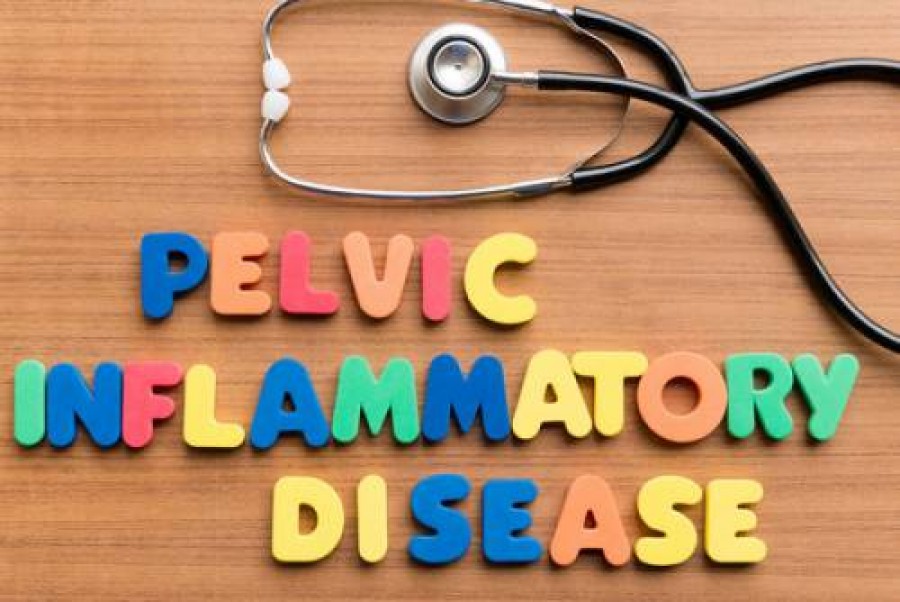Polycystic Ovarian Syndrome: Everything you need to know

The female body is made up of a range of hormones that need to stay in balance to keep the body in check.
When things are thrown off, even just slightly, problems arise!
One common problem that occurs in women is Polycystic Ovarian Syndrome. It is a mouthful to say, so better referred to as PCOS.
PCOS happens when there is an excess of the male hormone androgen.
These increased levels cause a range of issues for women of reproductive age, including fertility struggles and cysts on the ovaries.
Here is a deeper look at the causes, symptoms, and treatment for PCOS!
Although problematic, it is treatable with early detection and there are many preventative measures to take to avoid longer-term problems from occurring.
What causes PCOS?
There is a lot of research going into PCOS but there are no concrete causes of it.
There are many factors that can have an influence with PCOS, but mostly it comes down to hormonal imbalance.
Something we rarely realise about the female hormonal system is that there is a range of male hormones that come into play.
It is normal for the ovaries to produce a small amount of androgens. When there are too many androgens coming out of the ovaries, PCOS can occur.
Another possible cause is an imbalance with insulin. If there are excess insulin levels, a resistance occurs. Insulin is the hormone that allows humans to digest sugar. An excessive amount of insulin retained in the body can lead to more androgens being produced.
It is also thought that the condition can be hereditary although this area is still being researched and there is no definite explanation.
What are the symptoms of PCOS?
Since the hormones are so tricky and difficult to understand, there are no direct symptoms of PCOS.
There is a range of symptoms that might lead to PCOS, but these are also symptoms of many other things playing up in the female body.
This is why regular check-ups are so important, especially at reproductive age!
Some things that might be a sign of PCOS include acne or facial hair, due to the increased androgen levels. Weight gain or trouble losing weight can also be a sign of the hormonal imbalance.
Most commonly, missed or irregular periods are a major sign. This is one of the hereditary factors so it is always good to know family history and their menstrual patterns to look out for this.
Finally, there are fertility issues!
Many women realise they have PCOS when they are trying to get pregnant. Obstetricians and gynaecologists are equipped and trained in recognising, diagnosing, and treating PCOS when women make appointments for infertility help.
Are there any side effects of PCOS?
Not without its complications, PCOS can lead to a range of health problems if it isn’t treated.
Although infertility is a common sign of PCOS, it is still possible to fall pregnant with this condition.
These pregnancies need to be well monitored for gestational diabetes, miscarriage, and premature birth are risk factors.
There can also be problems with sleep apnea, metabolic problems, uterine bleeding, and depression.
Thankfully, PCOS can be managed effectively and there are many preventative tactics to avoid these wider health concerns.
How is PCOS treated?
Fortunately, there are many ways to treat PCOS and lessen the severity of it.
Even if it doesn’t go away completely, it is entirely possible for women with PCOS to lead healthy lives and have normal pregnancies.
The main treatments for PCOS relate to a healthy diet and healthy weight.
Since hormones are controlled and affected so much by what we eat and what our weight is, it is important to consider these factors and maintain a healthy lifestyle.
Regular health focus can reduce the long-term severity of PCOS!
First, exercising moderately and staying active throughout the week is key.
The recommended exercise amount for the average adult is 30 minutes a day. This doesn’t have to be an intense, sweat-filled work out at the gym, rather just soft cardio, yoga, or walking.
Next, eating foods that are healthy for the heart and promote hormonal balance is essential. This might mean big dietary changes for some people, but it is worth it in the long term.
Vegetables, beans, nuts, fruits, and whole grains should make up the main portion of each meal.
Avoiding saturated fats and oily foods are important. It is fine to have a cheat day every now and then, but they shouldn’t dominate the plate.
Importantly, women who smoke should seriously consider quitting. It is much better for overall health to avoid smoking and can help to reduce the prevalence and severity of PCOS.
Overall, keeping a healthy weight and eating fresh ingredients helps to keep the body and its hormones in check.
Losing weight, even just 5 kilograms, can help to regulate the menstrual cycle and keep ovulation on track.
Doctors may also prescribe birth control pills as a way to regulate this, depending on the individual circumstances.
How do doctors diagnose PCOS?
As stated early, many women find out they have PCOS if they have fertility issues.
Also, if women are experiencing irregular menstrual cycles, the doctor may investigate and find this as a cause. There is no definitive test for PCOS, rather it is generally found through an investigation of other health concerns.
When presenting to a doctor with fertility or menstrual struggles, some diagnostics they may run include:
- A pelvic exam to assess the reproductive organs and check for any masses on the fallopian tubes or ovaries
- Blood tests to measure and analyse hormonal levels
- An ultrasound check the appearance of the ovaries and the thickness of the uterus lining
For doctors to formally diagnose PCOS, they need to have a thorough rundown of medical history, family history, and lifestyle factors. Some questions they may ask during their investigation include:
- When was the last period?
- What are the symptoms and how severe are they?
- Has there been any weight gain?
- Are there any attempts at trying to get pregnant?
Most Viewed
-
5 Common Methods of Contraception
Last updated On by Percy Oad -
How to Cope with Male Infertility
Last updated On by Alina -
What is the Difference Between Primary and Secondary Infertility?
Last updated On by Madison -
How to start a child-free life after infertility
Last updated On by Jacinta







